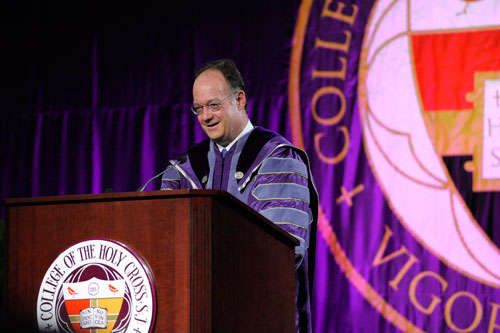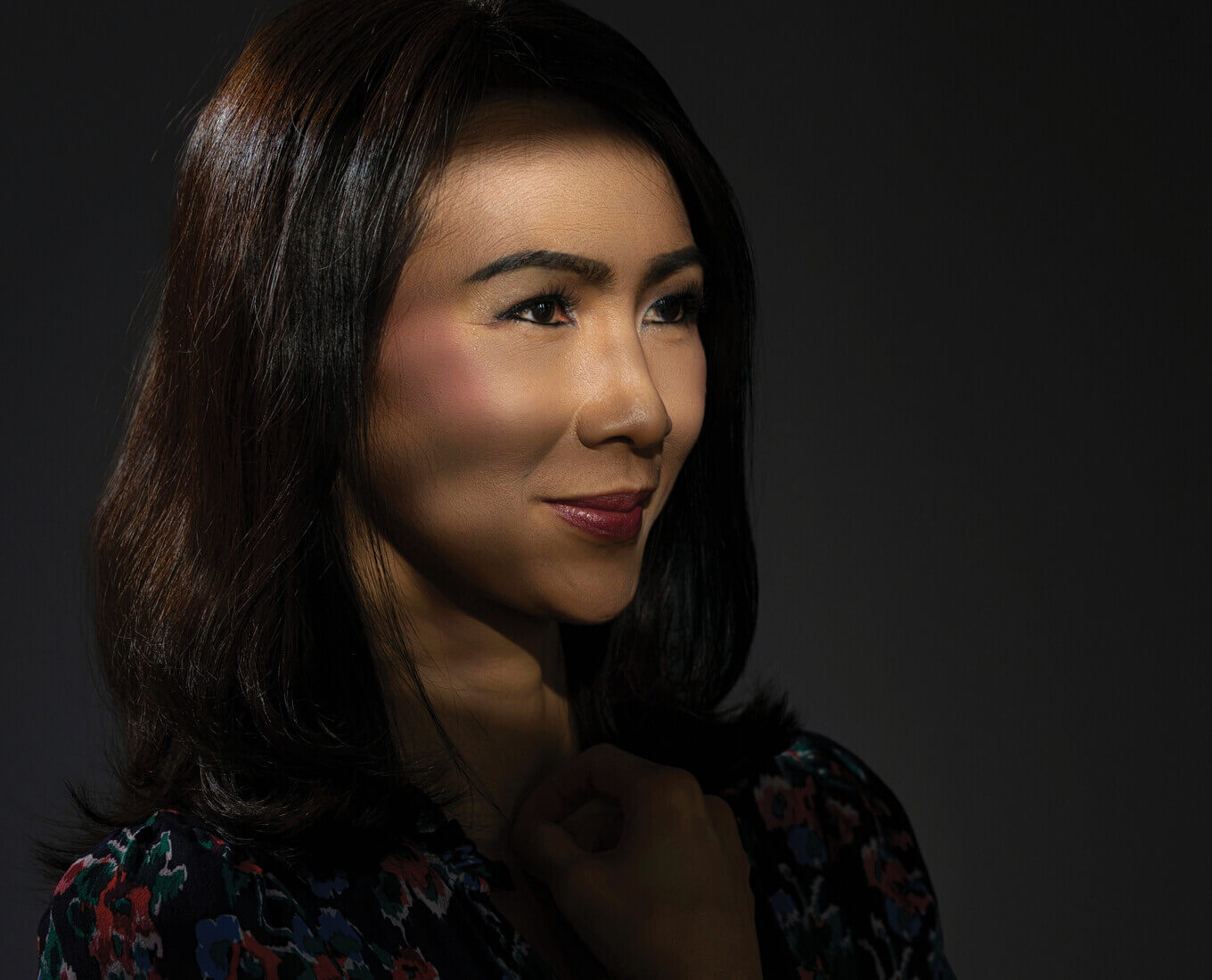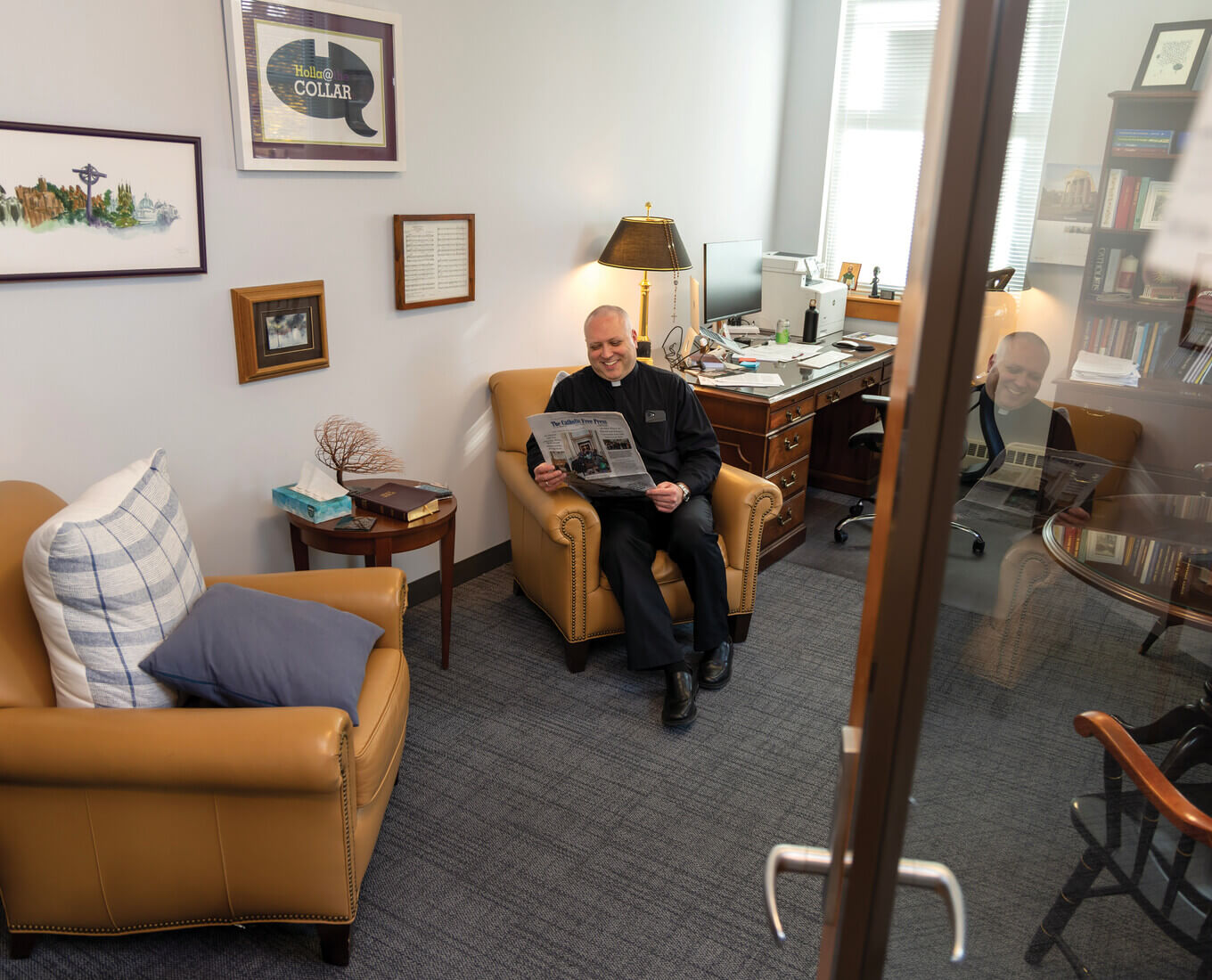By John J. DeGioia
It is an honor for me to be with you today as we celebrate this extraordinary moment in the life of this community. I can’t begin to tell you what it means to be here on this day of celebration of your President, Father Phil Boroughs.
It has been a privilege to know and work with this good man for many years, and I have some sense of the kind of impact this thoughtful and prayerful man is already having on this wonderful community.
We live in very challenging times. Of course, any university with the history and tradition of Holy Cross will have known challenging times before! When the sign over the door says, “since 1843” you can have some confidence in the resiliency of a community and of the devotion it inspires in its members. And any university that is led by Philip Boroughs will be prepared to respond to the demands of our times.
These demands include questions about our “business model” (and we all seem to have to have one these days): is it sustainable? Can we ensure access and affordability? Can we adapt to new technologies? How much of our future will be online? Is there a place for the liberal arts in a “monoculture” driven and shaped by market forces? How do we prepare our young women and men for their place in a world torn by religious and ethnic strife? How do we respond to the needs of half of the world’s population living on less than $2 a day? (1)
Most important, do the values and commitments that have shaped this community for 170 years still have a place in our world?
In moments like this, in the tradition upon which the community is built, we seek an engagement with these challenges that enables us to pursue “the end for which we are created”—“to praise, reverence, and serve God.” (2)
Over all these years, you have developed a distinctive identity for the College of the Holy Cross. This identity is present in the practices and rituals that have come to capture your deepest values; through the curricula that interpret your intellectual priorities; through the residential and extracurricular life that complement the faculty’s engagement.
You have developed a way of life that seeks what St. Ignatius called “consolation”—an interior, affective feeling of knowing we are acting in accord with God’s will for us.
There are three elements of the identity of this College that are a source of your strength: the commitment to the liberal arts; the community that you have forged; and the spirituality that animates everything that happens here.
First, we are heirs to what is perhaps the greatest tradition of learning the world has ever seen. What is truly distinctive is the manner in which this tradition sought to integrate a commitment to truth with a commitment to the good.
No one has captured this idea better than Father John O’Malley, S.J., when he describes the creative appropriation of two distinct styles of learning—the culture of the academy—with its open-ended, never-ending search for the truth, through the discovery and deployment of the most rigorous methodologies, with a commitment to the common good—to a civic culture—one that recognizes the responsibility to form citizens capable of exercising justice in the world.
It is the Liberal Arts that provides the means through which to engage in this integration. We seek the truth and we seek the good. It is a distinctive characteristic of the Jesuit college to achieve this integration. If we are true to ourselves, we enable our students to achieve an interior freedom that enables them to follow their thinking wherever it may lead, and to forge a conscience, a moral imagination capable of reflective engagement in the world.
Blessed John Henry Newman described a “liberal” education as enabling “A habit of mind” to be “formed which lasts through life, of which the attributes are freedom, equitableness, calmness, moderation, and wisdom….” (3) In our tradition, we recognize the urgency of developing the capacity for holding ambiguity. In our tradition we recognize the need to hold together faith and reason, nature and grace, continuity and change.
Second, this is a place—a place where you have built an enduring community. In building the first Catholic college in Ireland, Cardinal Newman imagined the role of place: “This I conceive to be the advantage of a seat of universal learning”—for Newman, a residential college—a place where exceptional scholars “zealous for their own sciences, and rivals of each other, are brought, by familiar intercourse and for the sake of intellectual peace, to adjust together the claims and relations of their respective subjects of investigation. They learn to respect, to consult, to aid each other. Thus is created a pure and clear atmosphere of thought which the student also breathes…”. (4)
On my way home each night from our campus at Georgetown, I pass by a group of residence halls, all providing homes for our undergraduates. Sometimes, especially on Friday evenings, when I pass, the buildings are just pulsating with noise and energy. It can be a little intimidating. And I remind myself—this is our strategic advantage! I often wonder whether Newman would identify our first-year dorms with the “pure and clear atmosphere of thought” he described.
But there is something that happens because we are together. It is impossible to imagine how the experience of community can be re-created online. There is no doubt that some kinds of learning can be conducted, that some very powerful experiences can be created effectively through digital platforms. But something is realized, something happens when we come together in a place, shaped by a shared common purpose, a common vision of what brings us together.
The vision of a Catholic and Jesuit college is one where we come together. The ideals upon which a college is built are abstractions until we come together, in a place, as a community. A community is a place where together we can accomplish things, experience things, where we can be and become what we can never do alone. This is the “where”—this is the place that enables ideals to come alive.
Third, we bring an additional resource to our work, a resource of incomparable worth. In addition to our intellectual and moral resources, we bring the resources of a spiritual tradition. We are animated by the spirituality of St. Ignatius of Loyola. In this tradition, we believe that the Spirit is right here, present, in this very moment, and in every moment, informing our inquiry, our discernment, our engagement, our interactions. Ignatius and his followers first came together within the context of a university. The Spiritual Exercises were honed in the context of a community just like this one—one shaped by the pursuit of wisdom.
Moments of transition can often be filled with anxieties and uncertainties: will a new leader respect our “way of life”, grasp our distinctive appropriation of our Jesuit identity, sustain continuity of our most deeply held beliefs and practices, while ensuring we can cope with what can only be described as the “inhuman volatility” (5) of our time?
I am certain that in these first months of this presidency, you know that you are now “as one” with a large-souled man who has lived his vocation with integrity and fidelity, a selfless man who will bring out the best in you, the best in this community. It is with profound respect that I join you today in celebrating my dear friend, Father Phil Boroughs.
(1)Forty-eight percent of the world’s population lives on less than $2 a day. “2011 World Population Data Sheet,” Population Reference Bureau, accessed September 14, 2012, http://www.prb.org/pdf11/2011population-data-sheet_eng.pdf.
(2) Louis J. Puhl, trans., “First Principle and Foundation,” The Spiritual Exercises of Saint Ignatius (Chicago: Loyola Press, 1968), 12.
(3)John Henry Newman, The Idea of a University (Notre Dame, Indiana: University of Notre Dame Press, 1982), 76.
(4)Newman, Idea of a University, 76.
(5)This phrase was coined by Kiril Sokoloff, of 13 D Research, in June 2007. It was most recently referenced in 13 D Research’s “What I Learned This Week” report, August 30, 2012, http://www.13d.com/publications.php.
John J. DeGioia is president of Georgetown University. 
Inauguration: Inaugural Address
Read Time
6 Minutes

